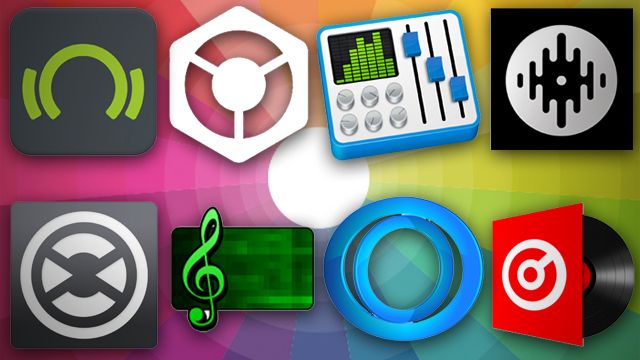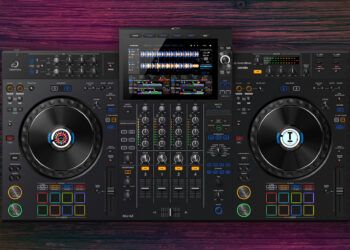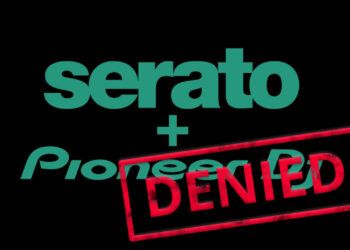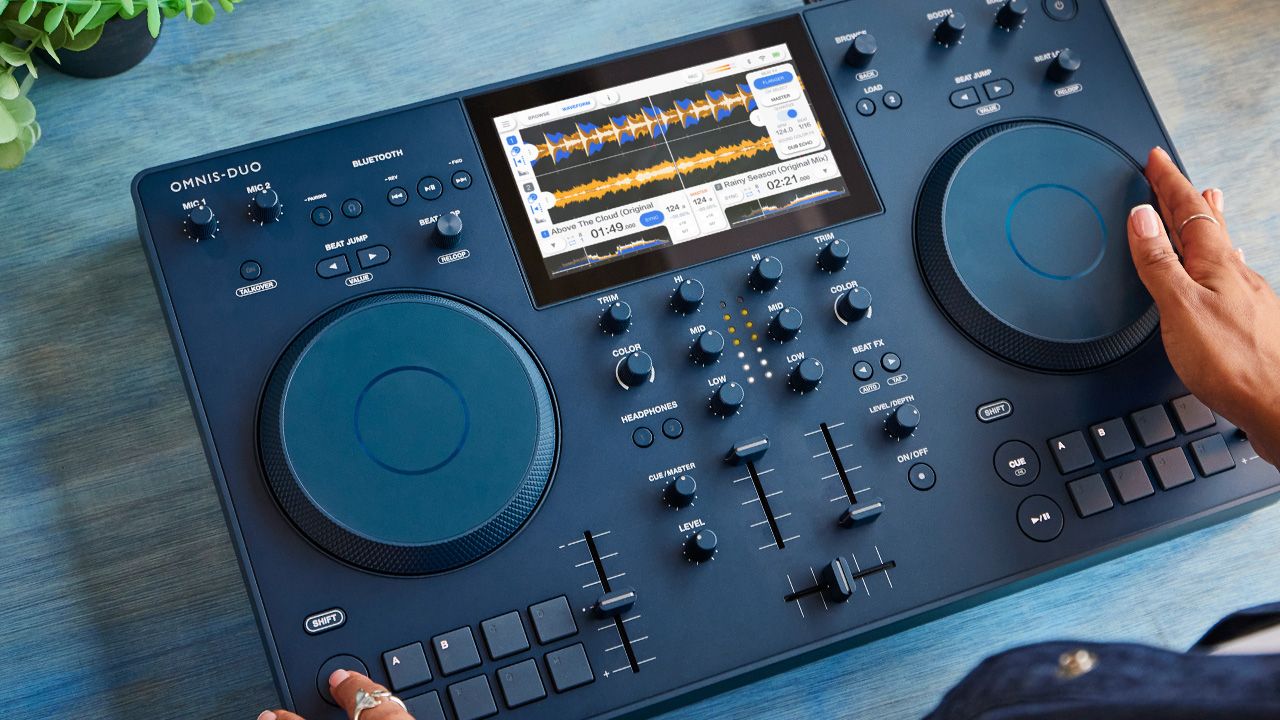Since our last key detection software square-off almost two years ago, we’ve seen new iterations of DJ software continue to incorporate key analysis. Serato DJ enters the fray, and Rekordbox is vying for status as a DJ platform. Want to know what software has the best key-finding algorithms, and which still need an overhaul? Read on for our test results.
Two Key Detection Tests

Major / Minor Triads (“Control”) – In our first test, we crafted 24 very simple songs, consisting of an basic house drum loop and a piano playing a major or minor triad for each of the keys. Some softwares understand this pretty well, others get completely thrown off by how simple the solution is – the results are always fascinating.
Real World Test – Like last time, our real world test consists of 66 tracks from Beatport – the top three songs from every genre on the platform. This is designed to mirror what DJs might be playing on dance floors right now around the world, which is what these softwares claim to be able to detect the key of. We ran songs through our human key finding experts and 10 different softwares to see how close software can come to the human ear.
Human Testers VS Key Finding Algorithms

I’ll repeat what we always say when talking about harmonic mixing – “trust your ears!” It’s critical to not build a dependency on tools, but instead use them to augment a sense of when something works or doesn’t. We’ve heard from some sources that even a groups of pitch-perfect classically trained musicians have a significant rate of disagreement about the key of certain songs.
Like last time we did a test like this on DJTT, all the songs had to have a consensus from the human group to be included in the final results. Our human test group included myself and 5 well-suited volunteers with experienced ears from the DJTT community.
We all pain-stakingly listened to every song and came up with the best choice for the key of the song. Despite coming to a consensus (simple majority) on each track, maybe six sets of ears could be wrong. All of the data is available as a free download at the end of this article (or click here), and if you disagree, feel free to make a case for a different consensus on a track in the comments.
The Key Analysis Competitors
Beatport’s Store Tags
We’ve read many reports around the web of Beatport using their own internal software to determine the key of tracks – something that is backed up by the data. Our understanding is that the keys are not just what the label reports to Beatport when submitting them – so we decided to analyze how accurate the keys that come with purchased tracks are on the Beatport store.
Major/Minor Triad Test: Not possible – no way to manually test.
# of correct tracks (vs human volunteer consensus): 40 (61% correct)
# of Major / Minor misreads: 13
Serato DJ 1.8
With 1.8 only just becoming public a few weeks ago, this is easily the newest key detection algorithm in the industry. We were impressed at a strong initial showing from Serato in this roundup. With the addition of the Pitch’n’Time DJ key shifting in 1.8, Serato have a major win for harmonic mixing DJs on their hands.
Major/Minor Triad Test: 67% – eight incorrect.
# of correct tracks (vs human volunteer consensus): 46 (70% correct)
# of Major / Minor misreads: Only 1 – this doesn’t seem to be an issue for Serato DJ
Mixed In Key 7 (and 6)
Mixed In Key’s algorithm remaining the reigning champion in this domain, but did the new update to the software from 6 to 7 make a difference? In our testing, the results were identical – meaning that if an upgrade is only really important if you’re looking for auto-cue points, better energy levels, etc – in terms of the results in key detection, there was no difference. Either way MiK landed the top slot yet again!
Major/Minor Triad Test: 75% – six incorrect.
# of correct tracks (vs human volunteer consensus): 57 (86% correct)
# of Major / Minor misreads: 2
Virtual DJ 8.0.0
Since the last test, Virtual DJ finally rolled out their version 8 update to the software – but it was too much to hope that the key detection algorithm had improved with this new update. It’s the lowest-scoring software in the lineup, and for some reason was unable to get any of the Major/Minor triad test correct
Major/Minor Triad Test: 4% – only one correct, because it returned G#maj for every track.
# of correct tracks (vs human volunteer consensus): 27 (41% correct)
# of Major / Minor misreads: 10
Rekordbox 3.3.0
Since the last test, Rekordbox has gone through two iterations – one of which involved the entire rewriting of the code base and complete ownership by Pioneer DJ (they previously outsourced development to Mixvibes). Rekordbox 3 had a pretty mediocre showing, but actually out-performed in the Major/Minor Triad test.
Major/Minor Triad Test: 96% – one incorrect.
# of correct tracks (vs human volunteer consensus): 34 (52% correct)
# of Major / Minor misreads: 10
Rekordbox 4.0.2 / Rekordbox DJ
Up next is the most recent version of Pioneer’s DJ software and library tool – and there’s serious improvement in Rekordbox 4. We suspect that this was a focus of attention considering that they’re hoping to win over Traktor and Serato users with the rollout of the new performance mode in the software. It’s fascinating to see this algorithm tied with Serato DJ, considering so many other elements between the two softwares already feel very alike.
Major/Minor Triad Test: 46% – 13 incorrect.
# of correct tracks (vs human volunteer consensus): 46 (70% correct)
# of Major / Minor misreads: 7
Traktor Pro 2.10 (and Traktor DJ)
We’ve got many wishes for what Traktor Pro 3 might include – but better key detection has been on the wishlist for a while. Even with increasing focus on live performance, Native Instruments hasn’t made any efforts to improve the identical mediocre key detection on the desktop or iOS platform.
Major/Minor Triad Test: 42% – 14 incorrect.
# of correct tracks (vs human volunteer consensus): 31 (47% correct)
# of Major / Minor misreads: 16 – this is clearly a big part of the issue.
Beatunes 4.5.6
We like including this standalone piece of playlist-creation and music analysis software because it’s unique and different. There’s all kinds of features designed for playlist curators – and it actually fares pretty well in the key detection showdown. Virtual DJ and Traktor have something to learn from Beatunes.
Major/Minor Triad Test: 96% – only one incorrect.
# of correct tracks (vs human volunteer consensus): 43 (65% correct)
# of Major / Minor misreads: 11
Keyfinder 1.26
Keyfinder is the only free piece of software on this list – and likely the best hope for beating Mixed In Key someday. While the 2.0 version of the software was taken down due to crashing issues, 1.26 still does pretty well in this contest. We’re waiting on a copy of 2.0 in the next week and we will do a followup article to see how it fares.
Major/Minor Triad Test: 33% – 13 incorrect.
# of correct tracks (vs human volunteer consensus): 43 (65% correct)
# of Major / Minor misreads: 5

Want to download the spreadsheet where all of this data was collected, and check it out for yourself? It’s a free download, just have to log into your DJTT account (free if you don’t have one).
Our Major Conclusions
- Mixed In Key 6 and 7 are the same, but the best: The new iteration of the best key detection algorithm out there seem to use a nearly identical (but solid) algorithm.
- Traktor and Traktor DJ still identical: Despite a continued drastically different feature set on desktop and iOS, the two softwares do still have the same key detection algorithm. We tested every single song anyway just to be sure – but the results were identical.
- Humans don’t always agree: As with every time you get a group of people together and get them to identify the key of a track, there will be disagreements. In this round, many of the second-place human results were similar to results that some of the algorithms found – meaning that even if the algorithms are getting some wrong, they’re often getting tricked by the same things a human ear might be.
- Rekordbox got way better: A sign that Pioneer really has taken their foray into the world of digital DJ software seriously. Rekordbox 4 is nearly a 20% improvement over the last version of the software, tying it with Serato DJ
- Serato DJ is strong: The newcomers are doing well in this shakedown – and considering Serato’s desire to remain competitive, we could easily see them continuing to improve their key detection algorithm in the next few versions of the software.
- The baseline test can be deceiving: Despite us designing this to be a basic test of key detection, many softwares completely failed. Perhaps they were looking for something more complex in the song. Virtual DJ especially had no idea what was happening in this test – returning “G#maj” for every single track.
- Some tracks can be pretty ambiguous: Specifically we had one track that no algorithm “got right”. Our human judges consensus was that the David Temessi Remix of Dual Fuel’s “Humano” was in Amin, we got a host of other thoughts from the softwares. Listen below and enjoy how hard this one is to figure out (most songs were more cut-and-dry):
Please note – this article was not sponsored, endorsed, or even requested by any of the involved software developers. We this based on popular user request, so enjoy!
Special thanks to those who contributed to this article, including DJ Divine Justice, Dean Zulueta, Jonathan Hatcher, and others.









